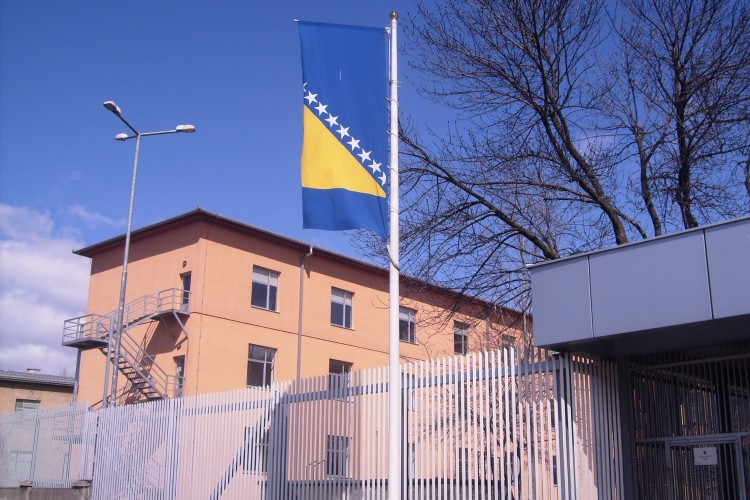A complete analysis of the BiH elections will only be possible once the full results of the polls are known in the coming days. Nevertheless, it is possible at this juncture to offer some preliminary thoughts which can guide our observations of the events to come.
To begin with, with a marginally worse figure than in 2010, turnout continues to be a major problem in BiH elections. The reasons for this are multifaceted, as a recent study concluded, but are certainly in large part due to a general disillusionment with the existing political process. All the election results must thus be taken in the context of such a depressing dynamic.
Bakir Izetbegović, for instance, won the Bosniak seat of the state presidency with barely 33% of the vote. It remains to be seen whether, given these results, the respective “victors” of these elections (namely, the SDA, HDZ, and SNSD) will interpret their percentages as “popular” mandates or, more accurately, another, potentially fleeting, lifeline from the electorate.
In particular, the surge in SDA support is, at first glance, striking. On closer examination, however, we can see that reform and left-of-center parties (by BiH standards) continue to enjoy the support of a sizeable chunk of the electorate. It’s clear, for instance, that the collapse of the SDP at the polls was a boon for the newly formed DF. Nevertheless, between the two, the DF and SDP won approximately 25% of the vote in the Federation—akin to their 2010 results. If we include in this total the SBB, a party though more conservative which has nevertheless presented itself as “moderate” (nationally speaking), we can conclude that nominally “reform-oriented” parties in the larger of the two entities won nearly 40% of the vote. If we then add the HDZ1990 to this total, this number actually begins to inch towards 50%.
Some may quibble over the characterization of these parties’ policies as “reformist” or “leftist” but this point stands: there is a consistent constituency for change in BiH, as a whole. This is especially clear when examining the results in the RS. Milorad Dodik’s ability to hang-on to his own post of entity president was unsurprising but the victory of Mladen Ivanić represents a significant development; namely, the fracturing of the Serb bloc in BiH, following similar developments in the Bosniak and Croat communities in years prior. With the Serb post of the state presidency and possibly even the RS legislature in “opposition” hands, we may finally begin to see a substantive policy debate in the Serb community in BiH. This may or may not mean immediate movement on BiH’s EU accession path but it represents arguably the biggest such opportunity since 2006.
How Serb politics in BiH will develop also depends greatly on the performance of the returnee “Homeland” list. As of this writing, preliminary figures suggest as many as six Homeland delegates now sitting in the RS assembly and another in the state parliament from the RS. If accurate, this will represent the biggest political victory for the returnee population in BiH since the end of the war. If, moreover, the Homeland delegates become instrumental in the formation of a governing SDS-PDP bloc in the RS, as they may very well have to be, then we may be in for major changes in eastern BiH, indeed.
The Serb races offer us something else: the rise and fall of Željka Cvijanović. The (soon to be former?) Prime Minister of the RS emerged as a Dodik-backed candidate in March of last year but since then has struggled to appear as anything other than the President’s proxy. The implications of this rejection could be paradigmatic. Both the SDA and HDZ are likewise top heavy outfits and both their leaders will now be in their second and final mandates as state presidents. Undoubtedly, both Bakir Izetbegović and Dragan Čović, as Željko Komšić before them, will go on to have long-lasting political careers once their presidency terms have expired. But who will replace them in the executive branch? And will these candidates be able to command the kind of support necessary to win such posts, even with established brands attached to their names?
In the long run then, the biggest winners of these polls may in fact be the DF. In Emir Suljagić, Komšić has a clear, capable, and determined heir-apparent. In 2018, when the SDA will undoubtedly struggle to produce a credible presidential candidate, the DF will be able to produce a more experienced Suljagić, who will claim no small amount of authorship for the success of the “Homeland” list in the intervening period. Moreover, we can now expect a mass exodus from the ranks of the SDP and the DF is the only sensible place for these candidates and supporters to go. The SBB, whose Fahrudin Radončić beat Suljagić to second place in the presidency race, is unlikely to capitalize on the SDP’s collapse in similar fashion and will only grow weaker as the DF strengthens its grip on the left electorate.
Above all, however, let us hope for a prompt and clear government formation process. The post-2010 circus, where it took sixteen months to form governments at the state and Federation level, cannot be repeated. A clear government and opposition dynamic may, temporarily at least, stave off further street protests, if all involved have even an iota of self-preservation instincts. On the other hand, another cynical and disastrous round of “division of spoils,” as in 2010, may be punished severely indeed, and much sooner than anyone in the political establishment may believe possible.
And in this is the crux of the problem: BiH’s woes are not with this or that particular party. Milorad Dodik will no more obtain his “independence” project than Dragan Čović will receive his “third entity” or Bakir Izetbegović will completely drown the country’s Bosnians in a sea of Bosniaks. The problem is institutional: it is the Dayton constitutional order itself which has no mechanisms allowing for or rewarding reform—as the shameful non-implementation of the Sejdić-Finci decision illustrates. Change in BiH will have to come from without—from the streets, from the citizens, as we began to see in February. The question now is: when the storm comes, who, if anyone, in the existing structures will be able to weather and direct its fury?
(Source: Suedosteuropa)















